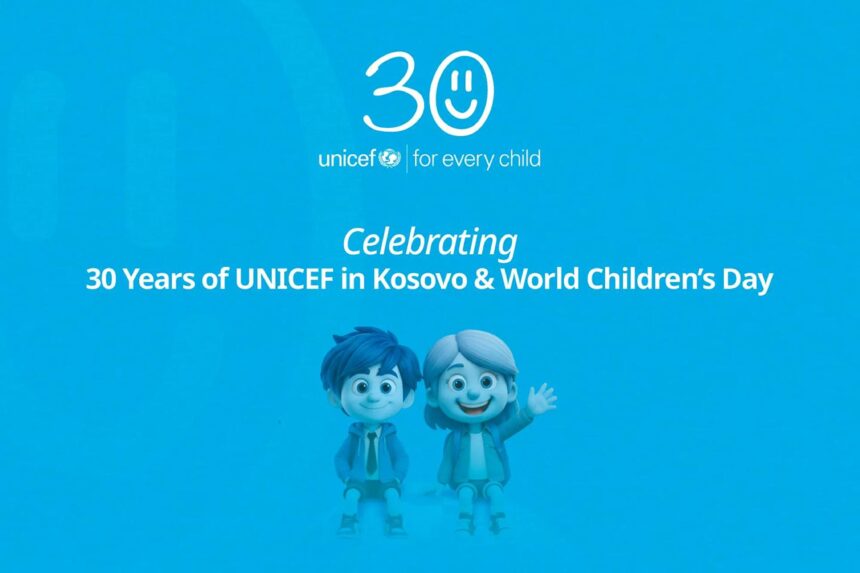World Children’s Day and the 30th anniversary of UNICEF in Kosovo were celebrated with a conference that brought together individuals who have contributed to the protection and empowerment of children over the years. Through personal stories, field experiences, and moments that have shaped the organization’s work, the challenging and long journey of UNICEF in Kosovo was highlighted.
Education, healthcare, and support for children and youth have been the main areas benefiting from UNICEF’s resources in Kosovo during the organization’s three decades of work, the conference emphasized.
The event featured personal experiences and testimonies from professionals who have been part of UNICEF’s mission to protect and empower children over the years.
Veronika Vashchenko, Head of UNICEF in Kosovo, recalled some of the most meaningful moments from the field.
She described a visit to the village of Brekoc in Gjakova, where she met children from the Roma, Ashkali, and Egyptian communities, who, she said, gave new meaning to the organization’s mission.
“Shortly after I started my assignment here, I traveled to the village of Brekoc in Gjakova to visit another center supported by UNICEF with our partners. I was deeply moved by the remarkable curiosity of the children from the Roma, Ashkali, and Egyptian communities. The youngest had prepared their classrooms, and older children were assisted with support courses and homework. Then I approached a man named Kendrin. He is a father of four and comes from the Egyptian community. I asked him: ‘What can UNICEF do better?’ He replied: ‘Veronika, I am illiterate. I bring my children here because it is extremely important that they have a better chance in life than I did, through education,’” Vashchenko said.
Flaka Surroi, owner of KOHË and the first UNICEF employee in Kosovo, also shared her story.
She spoke about the war years, when the team worked under difficult and often threatening conditions, but always with determination to help mothers and children.
“We went out into the field every day, except when the police blocked us. There was no clay road we didn’t cross, just to avoid police checkpoints. We were threatened with execution, arrested, searched… and all they achieved was to strengthen our resolve. Medical teams would treat up to 200 patients a day in improvised clinics, mostly mothers and their children. And in that crowd, there would always be an elderly person, who often had no serious ailment, except loneliness and sadness,” Surroi recalled.
During the conference, video messages from UNICEF collaborators were also shown, sharing their personal experiences and the emotions of their work.
Rijad Mehmeti, an advocate for children with disabilities, highlighted the challenges of isolation.
Meanwhile, Shemsije Jezerci, a nurse in the home visitation program, spoke about her daily work with families receiving direct support.
UNICEF leadership emphasized that over the years, they have contributed to drafting and adopting key legislation in Kosovo—from the Law on Child Protection to early childhood education and social and family services frameworks—as well as initiatives aimed at youth empowerment and early childhood development.







